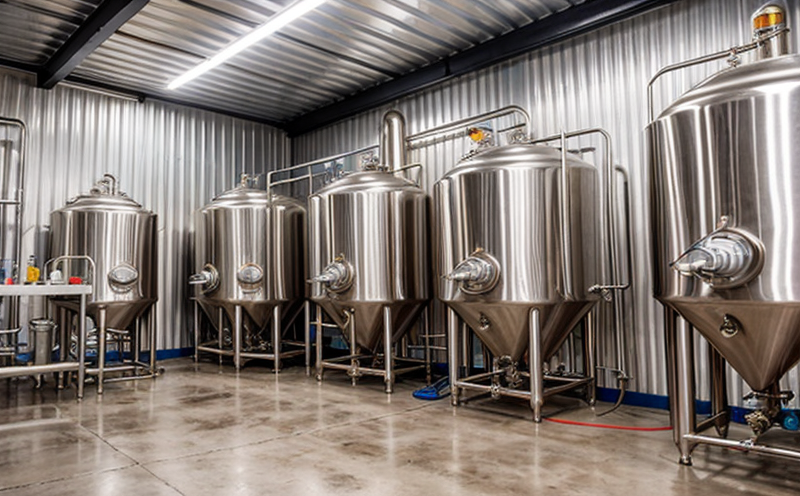Brewery hygiene inspection
The brewery industry is a cornerstone of global food and beverage production. Ensuring brewery hygiene is paramount to prevent contamination, maintain product quality, and protect public health. Brewery hygiene inspection encompasses a comprehensive set of practices aimed at safeguarding the cleanliness and integrity of brewing processes, equipment, and environments.
Hygiene in breweries involves multiple facets such as water quality, sanitation protocols, personnel hygiene, and the maintenance of production facilities. Hygiene is not merely about cleanliness; it is about maintaining a controlled environment that minimizes the risk of microbial contamination at every stage of the brewing process.
The importance of brewery hygiene cannot be overstated. Contamination can lead to off-flavors, spoilage, and even health issues among consumers. This necessitates rigorous inspection protocols and adherence to international standards such as ISO 9001 for quality management systems, ISO 22000 for food safety, and HACCP (Hazard Analysis and Critical Control Points) guidelines.
The primary objective of a brewery hygiene inspection is to ensure that all aspects of the brewing process comply with these standards. This includes regular testing of water sources, monitoring temperature and humidity levels in storage areas, assessing cleaning procedures, and verifying the effectiveness of sanitation measures at various stages of production.
Hygiene inspections often involve sampling and analyzing raw materials like hops, malt, and yeast to ensure they meet specified quality criteria. The inspection process also includes evaluating packaging materials and ensuring proper labeling practices are followed. Compliance with hygiene standards is essential not only for maintaining product integrity but also for avoiding costly recalls and lawsuits.
In addition to routine inspections, breweries may conduct audits at different intervals throughout the year or upon receiving complaints from customers. These audits help identify potential areas of improvement and ensure continuous adherence to best practices in hygiene management.
Customer Impact and Satisfaction
Brewery hygiene inspection plays a crucial role in enhancing customer satisfaction by ensuring that the products meet high standards of quality and safety. By adhering to strict hygiene protocols, breweries can deliver consistent taste profiles and prevent any issues related to contamination or spoilage.
Customers expect their favorite beers to be consistently flavorful and free from off-flavors. Hygiene inspections help maintain this consistency by identifying and addressing potential sources of contamination early on. This proactive approach not only protects the reputation of the brewery but also fosters long-term customer loyalty.
Moreover, compliance with hygiene standards can translate into better health outcomes for consumers. Clean production environments reduce the risk of foodborne illnesses, thereby contributing to public health and well-being. For quality managers and compliance officers within breweries, ensuring adherence to these standards is not just a regulatory requirement but also an ethical responsibility.
Regular inspections and audits ensure that all aspects of the brewing process are under scrutiny, leading to higher levels of confidence among both internal staff and external stakeholders like distributors and retailers. This transparency helps build trust and strengthens relationships within the industry.
International Acceptance and Recognition
- ISO 9001: Quality management systems for ensuring consistent product quality.
- ISO 22000: Food safety management systems covering the entire food chain from primary production to final consumption.
- HACCP: Hazard analysis and critical control points focusing on preventing contamination risks.
- BRC (British Retail Consortium): Global standards for food safety, quality, and hygiene in manufacturing environments.
Breweries that adhere to these international standards are recognized globally for their commitment to excellence. Certification under such programs enhances a brewery's credibility and opens doors to new markets and partnerships.
Recognition from reputable organizations like the International Breweries Association (IBA) further bolsters a brewery’s reputation among peers and customers alike. This recognition can lead to increased business opportunities, improved supplier relationships, and enhanced brand value.
Brewery hygiene inspection is not just about compliance; it's about setting benchmarks for excellence in food safety and quality assurance. By meeting these standards, breweries demonstrate their dedication to producing safe, high-quality products that meet consumer expectations worldwide.
Use Cases and Application Examples
| Use Case | Description |
|---|---|
| Brewery Water Testing | Testing the quality of water used in brewing processes. |
| Sanitation Monitoring | Monitoring and verifying sanitation measures within brewery facilities. |
| Raw Material Inspection | Evaluating the quality of raw materials such as hops, malt, and yeast. |
| Use Case | Description |
|---|---|
| Labeling Verification | Ensuring compliance with labeling regulations for packaging and product information. |
| Environmental Control | Maintaining optimal temperature, humidity, and other environmental factors in storage areas. |
In practice, these inspections are conducted using advanced instrumentation and analytical techniques. For instance, microbiological testing can detect even trace amounts of contaminants, ensuring that no harmful organisms make their way into the final product.





